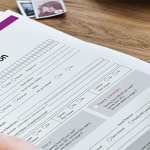Here are some of the top online tools for preparing for the IELTS speaking section. One of the best online resources for IELTS preparation is offered by the IELTS itself. It aids in your understanding of the test structure, and the website is constantly updated with IELTS-related information.
An online resource for IELTS preparation are the videos provided by Disha Education. Here, you may hone your English language abilities, and this tool enables you to complete the exam quickly and with the highest possible score.
Road to IELTS: This British Council website provides a tonne of practise exams, example videos, lessons, etc. You can monitor your development using interactive exercises.
Speaking practise tests are available from the Magoosh IELTS site. It supplies you with a study regimen and a notion of how to score. One of the best online tools for developing IELTS academic writing skills is IELTS Mentor. It includes practice tests, FAQs, and more. The IELTS IDP follows a similar format to the genuine IELTS in terms of instruction. They offer you examples and video
training. They assist you in practising the questions that have been asked previously. Liz from IELTS Liz offers online materials on websites and on YouTube. Liz has produced a tonne of informative videos about the IELTS and has expertise teaching English.
Three days before the test: IELTS Speaking advice
The days leading up to the actual exam day are very important. Be careful in whatever you do in the days leading up to the exam.
A few days before the test, you could need the following advice:
Keep your intellect sharp, maintain good health, and get enough sleep. You must get enough rest. Avoid tours and travel; they can cause disorientation and increase the likelihood that you will miss your exam. Never let your negative thoughts build up; always be optimistic about the outcome. Face the mirror and talk to yourself about the subjects. You may feel more confident after reading this and get a better understanding of how you appear to the examiner. Make sure you have everything you need, and if not, attempt to make arrangements as soon as you can.
Avoid last-minute studying and get enough rest the night before the test. Try to read something light hearted instead of the exam-related material. Review every error you made while practising, and make an effort to fix it. Review all the techniques and standards you must use when speaking. Make sure you record yourself so you can go back and fix all your errors. Learn all of the desired synonyms. Use the appropriate synonyms in the sentence
IELTS Speaking Tips – During the Test
Drink plenty of water to stay hydrated, and keep a water bottle on you at all times. Eat well before entering the exam room. Avoid looking away from the examiner’s face when responding to questions because that makes them uncomfortable. When speaking, keep your thoughts focused on what you are saying and avoid being distracted by other factors. Share your knowledge. Do not attempt to speak in new ways in the belief that this will enable you to improvise your material. Avoid speaking in a monotone. When speaking, it is preferable to call attention to certain words and phrases. When you enter the examination room, smile warmly and say hello to the examiner. If you don’t know the answer to a question, don’t remain silent. Inform the examiner that you were unaware of their query. When speaking, avoid using too many filler words and be sure to use precise, concise language. When speaking, use a variety of language and words.
How Can I Improve My Speaking Score on the IELTS?
The IELTS speaking test necessitates committed preparation with a set plan. You can practice for the speaking test by choosing a resource from books, blogs, internet materials, video lessons, IELTS classes, etc.
Keeps the conversation flowing by speaking just in English with your loved ones and friends. Take online practice exams to be ready for the speaking exam
You can get a sense of the test’s format by taking the practise exams. Practice the common questions that have been asked on the IELTS over the years. Make any necessary corrections by listening to a recording of your voice.
How much time should be allotted for IELTS speaking preparation?
You need to spend at least three to four weeks practicing if you want to do well on the IELTS speaking test. Spend these three to four weeks studying the details and honing your speaking skills for the IELTS exam.
In order to keep the conversation flowing with your friends or family in your free time, you must speak English.
Knowing your capability will help you decide when to start the preparation process. Even though the speaking portion of the IELTS only lasts for 15 minutes, you should not cut corners on your preparation. Spend the same amount of time on both.
Is Academic speaking differs from general speaking?
For both academic and general categories, the IELTS administers the speaking test in the same format. The IELTS speaking test follows the same pattern as the other tests.
Samples of IELTS Speaking Exams:
Three sections make up the IELTS speaking exam. The samples that follow give you an idea of the questions that are asked in each segment.
Sample question from Part 1:
An interview format is used for Part 1 of the IELTS speaking test, during which the examiner will ask you a few straightforward questions about yourself as well as inquiries about your interests, profession, family, etc. In the IELTS speaking test, questions like these may be asked:
Do you attend school?
In your spare time, what do you want to do? Do you play sports well?
What sort of cuisine do you enjoy?
Which among the places you visited was your favourite? You watch movies, right?
Sample question in part 2:
Describe your favourite movie. Who was the film’s director?
What scene in the movie was your favourite? Please describe the main character.
What was the story of the film? How come you liked it?
Sample question for Part 3:
In Part 3, the examiner explores further into the subject you discussed in Part 2. The third section will be a conversation.
Has the movie received any awards? What did the critics think about the film?
What effect did you get from seeing this movie?
Do you recall any instances where the movie dragged?
Did the movie remind you of yourself or a recent event in your life?
These are a few of the example questions that will help you get a feel for the examination.
PRACTICE TEST preparation
The best approach to prepare for the IELTS speaking test is to take practice exams. There are several practice tests available online. Make sure you have all the fundamentals under your belt before the test. When you are getting ready for the speaking test, record yourself.
After finishing the test, note your mistakes and make the appropriate corrections. Practice answering a range of questions. Practice many speaking styles; once you’ve found one that works for you, stick with it. Various Speaking Assignments / Tasks
The speaking test is divided into three sections.
The test is taken in its entirety informally. For 4-5 minutes, part 1 of the speaking test is conducted in an interview setting. The examiner will ask you questions about your interests, family, profession, and other topics.
You must discuss the provided topic in the second section as well as any questions that have been posed regarding it.
You have one minute to prepare for the topic, and you must talk for at least two minutes on it. You should address every query raised in relation to the subject.
The last speaking test component takes the shape of a dialogue. You must discuss with the examiner the areas in which they explore deeper into the subject you covered in part 2. This conversation will last 4-5 minutes.
Fluency and clarity of speech are important
The IELTS speaking test evaluates your capacity to communicate in a way that demonstrates your fluency and coherence. Your ability to communicate about a variety of subjects and to provide pertinent answers to the questions posed will both be examined.
The unintentional pauses that occur when a candidate is unsure of the response are the most frequent errors made during the speaking portion of the test. The use of complex words can occasionally cause interruptions in your speech.
Checklist for IELTS Speaking Preparation
You always need a checklist to finish a task, and if you have one, you are already halfway there. These are a few of the things you should be aware of when you study for the test.
Give the examiner a warm look/ smile as you greet them.
Pay attention to the standards that are used to gauge your speaking abilities.
When speaking, avoid using the same words or phrases repeatedly.
Make use of a variety of words and linguistic constructions. Practice all of the question formats that are used.
Avoid obsessing over a single piece of content. Know when to stop.
Part 2 will address all of the queries raised about the subject. Say the words bold and clear.
Avoid being too loud or too quiet. Try to make yourself heard by the examiner.
The pause should not be matched with filler words. With your words and opinions, be uncompromising.
To improve your vocabulary and grammar, practice using a dictionary and a thesaurus.
After learning all the fundamental test requirements, practice by taking practice tests.
Avoid making too many corrections while speaking. Be truthful in your statements of fact and opinion. Recognize the rules and the test’s structure.
Avoid speaking in a monotone. Emphasize in accordance with the situation
Don’t respond with a simple yes/no. When you speak, extend your responses.
IELTS Speaking Preparation FAQs
1.How can I practice speaking for the IELTS at home?
Through online resources like the videos provided by us, you may get ready for the IELTS speaking component. Disha Education Consultancy provides an online IELTS preparation aid. This tool aids in your comprehension of the IELTS speaking test’s insights. IELTS trainers from Disha Education understand students’ mindsets and help them at every step of the way.
2.How can I get a better IELTS speaking score?
By regularly practising with a set schedule, you can enhance your IELTS speaking abilities. By conversing in English with your friends and family, you can also hone your communication abilities.
3.How do I acquire an IELTS speaking score of 8?
IELTS band 8 scores are difficult to achieve. You must adhere to the standards used to assess your responses during the IELTS speaking test. Your band score can be raised by using a variety of words and grammar.
4.What can I do to enhance my IELTS speaking response?
You can hone and improve your responses by consulting books, online sources, and practice exams. You may make your answers better by recognizing the mistakes and fixing them.
5.How do I pass the speaking portion of the IELTS exam?
You need consistent practice and appropriate preparation to succeed on the IELTS speaking test. To achieve a high band score, be familiar with the test’s structure and rules.
To Sum Up IELTS speaking test success requires extensive preparation in order to achieve a respectable band score. Your speaking abilities will advance if you regularly practice using a timetable. You can improve your language flow by reading a lot of well-written books and blogs in English. Recognize the test structure and the standards used to assess your responses. Apply the criteria in your responses, and while speaking, employ a variety of syntax and terminology. The IELTS speaking test requires at least three to four weeks of preparation. So, plan your study time based on how well you can learn. You can get a feel for the test by preparing by taking practice tests. Create a checklist as the exam date approaches. By paying attention to every recommendation made in this blog, you can achieve a high band score.




